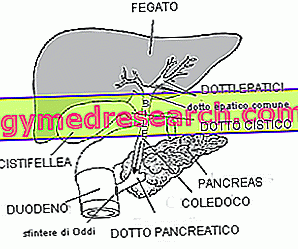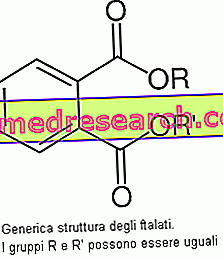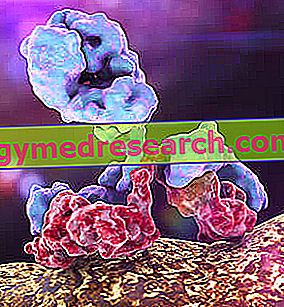MESULID ® is a drug based on Nimesulide
THERAPEUTIC GROUP: Non-steroidal anti-inflammatory and antirheumatic drugs
IndicationsAction mechanismStudies and clinical effectiveness Usage and dosage instructionsWarnings Pregnancy and lactationInteractionsContraindicationsUndesirable effects
Indications MESULID ® Nimesulide
MESULID ® is indicated for the symptomatic treatment of acute pain present in various inflammatory conditions or in primary dysmenorrhoea.
Mechanism of action MESULID ® Nimesulide
MESULID ®, a drug used to treat acute pain, is a medicine based on nimesulide, the active ingredient of the subclass of sulfonamides, belonging to the therapeutic category of non-steroidal anti-inflammatory drugs.
The presence of the sulfohanilide group allows on the one hand to make the activity of the active principle particularly selective, allowing an inhibitory action directed mainly towards the cyclooxygenase enzymatic isoforms induced by damaging and responsible events of the inflammatory process (COX2), and on the other hand of reduce the acidity of the compound.
The above characteristics make the intake of MESULID ® safer for the gastro-enteric mucosa, thus reducing both the direct damaging action of the active principle and that induced by the inhibition of prostaglandins with regulatory activity against acid and mucipar secretion.
As far as the therapeutic aspect is concerned, nimesulide, once absorbed by the gastrointestinal mucosa and distributed between tissues by binding to plasma proteins, reaches the tissues subjected to harmful stimuli and inhibits the activity of COX 2, guaranteeing a significant reduction of the production of prostaglandins with pro-inflammatory, algogenic and pyrogenic activity.
At the end of its activity, following a hepatic metabolism with cytochrome CYP2C9 isoforms as protagonists, more than 70% of nimesulide in the form of inactive catabolites is eliminated through the urine.
Studies carried out and clinical efficacy
1. THE ANALGESIC EFFECTIVENESS OF THE NIMESULIDE IN DENTAL PRACTICE
Int J Oral Maxillofac Surg. 2010 Jun; 39 (6): 580-4. Epub 2010 Apr 21.
Study demonstrating the greater analgesic efficacy of nimesulide even when compared to more recent anti-inflammatory drugs, in the common dental practice (extraction of the third molar)
2. THE HEPATOTOXICITY OF THE NIMESULIDE
Prescrire Int. 2011 May; 20 (116): 125-6.
Complaint study that highlights the important side effects of nimesulide on the liver, even during normal therapy cycles. In Europe, numerous cases of severe hepatitis have accumulated since 1998 following the use of nimesulide without any type of reporting by international agencies.
3. THE NIMESULIDE AS A NEUROPECTIVE AGENT
Sichuan Da Xue Xue Bao Yi Xue Ban. 2011 Jul; 42 (4): 498-502.
Interesting experimental study that demonstrates how nimesulide can perform an important neuroprotective effect, preserving the mnemonic and cognitive abilities in rats subjected to severe traumatic brain injury.
Method of use and dosage
MESULID ®
Nimesulide 100 mg tablets;
Granules for oral suspension of 50 or 100 mg of nimesulide;
Suppository for rectal use from 200 mg of nimesulide.
The recommended dosage in adults is one tablet, sachet or suppository twice a day, preferably after meals.
An adjustment of the dosages normally used could be taken into consideration by the doctor based on the patient's clinical picture, the efficacy of the therapy and the possible presence of hepatic and renal diseases.
Warnings MESULID ® Nimesulide
Given the important side effects commonly associated with nimesulide therapy it would be advisable to consult your doctor before taking MESULID ®.
In any case, therapy with nimesulide should be understood as a short-term therapy, useful for overcoming painful symptoms, thus avoiding prolonging the drug for prolonged periods of time.
In this case it is useful to remember how the incidence and severity of the side effects of the therapy can be proportional to the duration of the same and to the dosages used.
Patients with hepatic, renal, gastro-enteric and cardiovascular diseases should pay particular attention to taking MESULID ®, given their high susceptibility to drug treatment.
Should any side effects appear, the patient should immediately contact his doctor, taking into consideration the possibility of immediately suspending the therapy in progress.
MESULID ® in tablets contains lactose, therefore its use is not recommended in patients with lactose intolerance, lactase enzyme deficiency and glucose-galactose malabsorption syndrome.
MESULID ® granulate for oral suspension instead contains sucrose, making it less suitable for patients suffering from hereditary syndromes of fructose intolerance, glucose / galactose malabsorption and sucrose-isomaltase deficiency.
PREGNANCY AND BREASTFEEDING
The use of MESULID ® during pregnancy is strictly contraindicated given the numerous studies in the literature that show the increased risk of cardiovascular, respiratory and renal malformations of the fetus, following the intake of nimesulide during gestation.
To the side effects on the fetus are added those on the mother, subjected to an increased risk of bleeding and serious complications at the time of delivery.
Furthermore, given the tendency of nimesulide to concentrate in clinically relevant quantities in breast milk, it would be appropriate to extend the aforementioned contraindications to the subsequent breastfeeding phase.
Interactions
Even the nimesulide as well as the other active ingredients belonging to the category of anti-inflammatory drugs could be affected by the simultaneous intake of various drugs, thus losing the normal therapeutic activities and the related safety profile.
For this reason it would be appropriate to pay particular attention to the simultaneous assumption of:
- Diuretics, ACE inhibitors, angiotensin II antagonists, methotrexate and ciclosporin, capable of increasing renal toxicity of nimesulide;
- Valproic acid, fenofibrates, salicylates, tolbutamide able to compete with nimesulide for binding to the active site, thus reducing its therapeutic efficacy;
- Active ingredients capable of altering gastric motility, thus causing significant variations in drug absorption;
- Antibiotics and substrates of cytochromial enzymes, for alterations affecting pharmacokinetic and pharmacodynamic properties;
- NSAIDs and opioids, given the increased analgesic effect of their interaction;
- Anticoagulants, given the increased risk of bleeding associated with the simultaneous use of NSAIDs.
Contraindications MESULID ® Nimesulide
The use of MESULID ® is contraindicated in case of hypersensitivity to the active ingredient or to one of its excipients, hepatic and renal insufficiency, gastric ulcers and gastrointestinal pathologies and severe heart failure.
Undesirable effects - Side effects
Numerous clinical trials and careful post-marketing monitoring have assessed the incidence of side effects associated with nimesulide therapy.
Although this is lower than other non-selective NSAIDs, treatment with MESULID ® has been associated with the appearance of skin rash, pruritus, urticaria and edema, anemia, neutrophilia, thrombocytopenia, granule cytopenia, drowsiness, headache, insomnia and vertigo, tachycardia and hypertension, epigastric pain, nausea, vomiting, diarrhea and gastralgia, hyperkalemia, asthma, dyspnoea and bronchospasm, dysuria, oliguria, isolated hematuria and abnormal liver function.
However, the incidence and severity of the above-mentioned side effects was proportional to the total dose taken and the duration of drug therapy.
Note
MESULID ® is a prescription-only drug.



